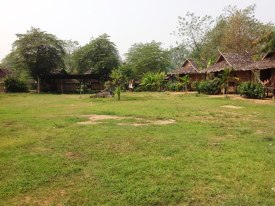Questions to consider before the big move
When planning your move to another country, it’s easy to get caught up in the heady excitement of all the choice and possibility. Suddenly places that seemed only a fantasy are very real possibilities as cities you might call home. But slow down before you get caught up in the romance of it. There are a number of considerations one should make before choosing a place to settle.
From health care services to whether or not past generations of ex-pats have been able to establish a happy life in a city, there are a number of questions to ask before making a decision. The following three cover some of the essentials.
1.) What are the real costs of living?
There are plenty of articles online that tout the benefits of living in this or that developing city, particularly the inexpensive nature of the place. While it’s nice to know that you can get by on $15 a day if you need to, it’s probably unrealistic to assume that will be your budget all the time. While it’s true that the cost of rent and food can be quite low in the developing world, the reality is that you’re probably used to a certain kind of lifestyle and aren’t going to want to give that up entirely. In many cities, including places like Bangkok, Beijing and Seoul, there are a number of Western and international restaurants, all of which are likely to be more expensive than dining at local food establishments. When choosing an apartment, you’re also going to have certain standards so be prepared to pay more for the extra amenities that will keep you from missing home too much.
2.) What kind of health care services are there?
Sure, a location might look and sound exotic and beautiful and that’s great. And maybe you’re in great shape, have a healthy diet and no persistent health problems. All of that is well and good, but accidents do happen and sometimes illnesses spring up seemingly out of nowhere. You don’t want to find yourself entrenched in a city where hospitals regularly run out of basic supplies, such as blood and oxygen, or where the staff is inadequately trained. Be sure to research the availability of doctors, quality of hospitals and accessibility of essential drugs.
3.) What is the ex-pat scene like?
This can be a significant indicator of the quality of life in a city. Sure, there will always be a learning curve and some culture shock wherever you are and that should be factored in, but you want to live in a place that other foreigners have been able to settle into as well. Seek out blogs written by long-term ex-pats in the city, forums and Couchsurfing message boards to find out what kind of cultural offerings there are and how satisfied people are with their lives there. You may even be able to establish some connections with people on the ground who can help you through the transition process once you arrive.




